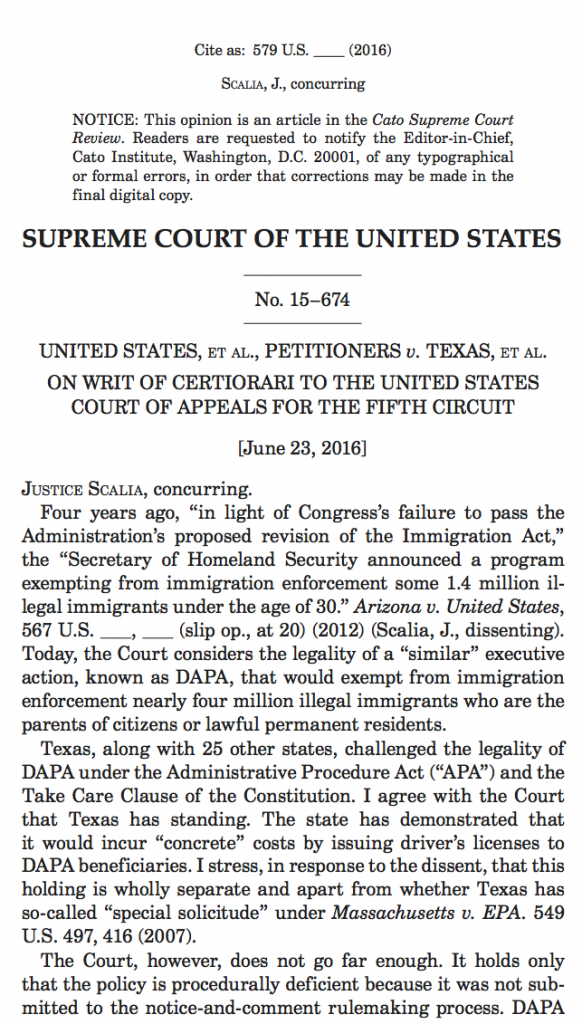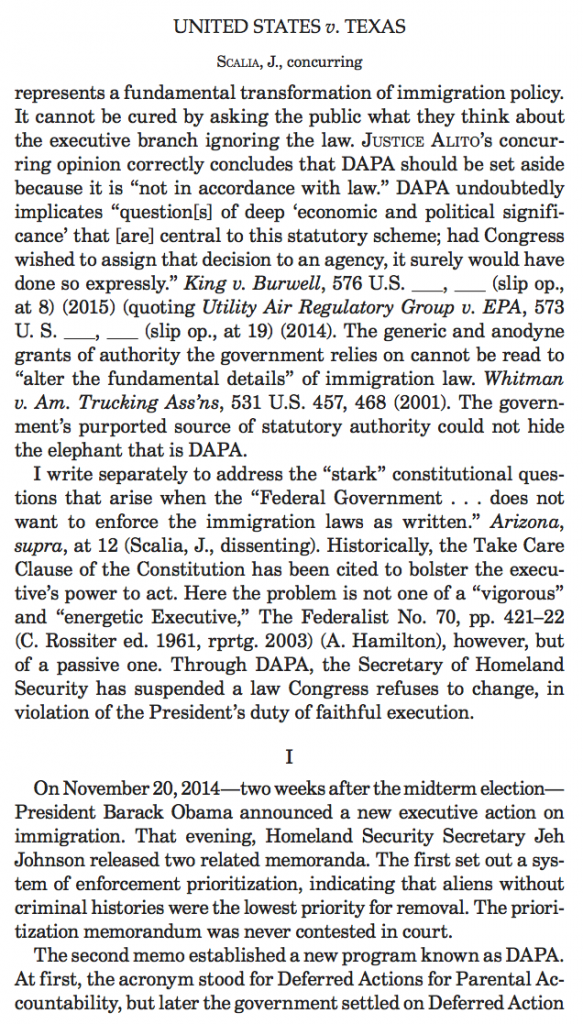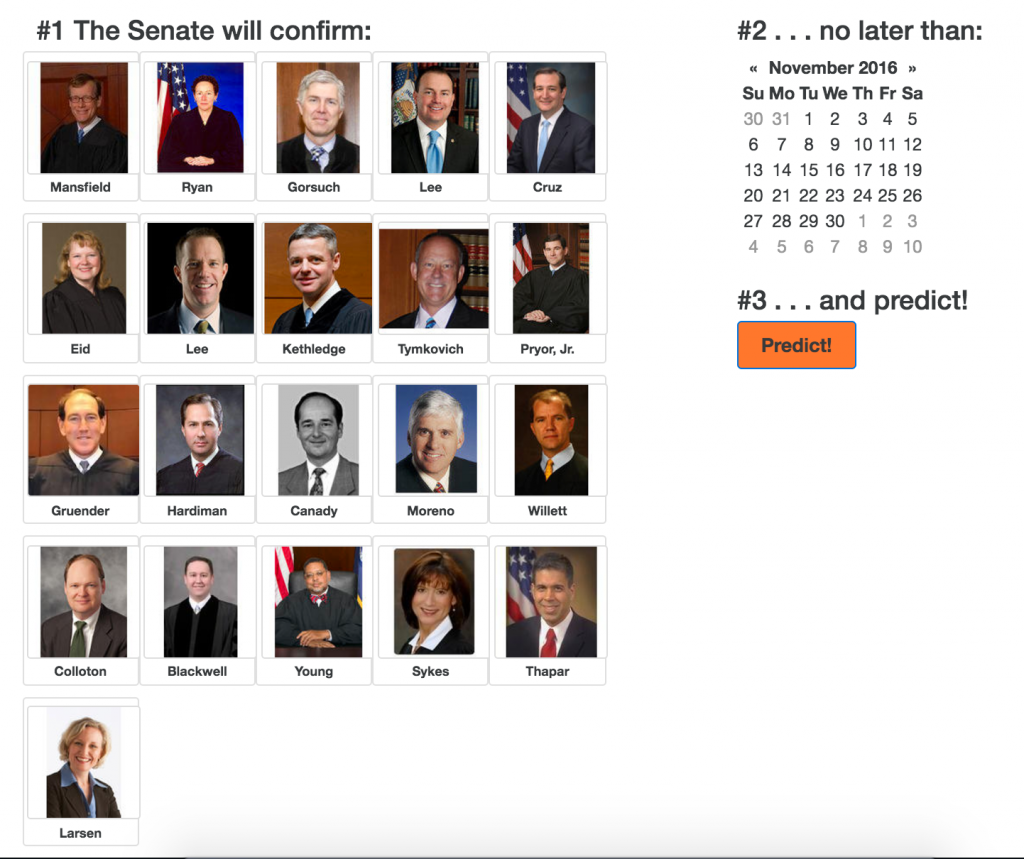One of the biggest heartbreaks of NFIB v. Sebelius was that the petitioners managed to convince Justice Kennedy that the ACA was a violation of the separation of powers. On the Roberts Court, persuading AMK on a separation-of-powers case was as good as winning. But, alas, the Chief Justice had other plans in mind. The same frustration plagued me with the Court’s 4-4 decision in United States v. Texas. The Lone Star State managed to persuade Kennedy, and Roberts that DAPA was unlawful. However, due to the untimely passing of Justice Scalia, we were once again one vote shy. I often wondered what Scalia would have done had he been able to participate in U.S. v. Texas. If I had to guess, he was responsible for adding the question presented about the Take Care Clause–this seems especially likely because of his 2012 dissent in Arizona v. United States, and the fact that no one (save the taciturn Justice Thomas) asked about the Take Care Clause during arguments.
To that end, my contribution to the 2015-2016 Cato Supreme Court Review imagines what could have been Justice Scalia’s concurring opinion in United States v. Texas. This counterfactual has Justice Scalia going further than the majority opinion (which found a procedural APA violation), and Justice Alito (who found a substantive APA violation) to conclude that DAPA is not consistent with the President’s duty to faithfully execute the laws.
Perhaps the best part of the piece is that Ilya Shapiro and his colleagues at Cato recreated the formatting of a SCOTUS opinion with a high degree of accuracy. If you look quickly, it appears like it came from a slip opinion! Enjoy.


I admit, attempting to mirror Justice Scalia’s tone and authority was daunting, and I’m sure I fell short, but I hope this provides some semblance of closure of the Term that could have been. For those interested, the final chapter of Unraveled provides an imagined opinion from Justice Scalia in Zubik v. Burwell. That dissent was easier to write, because I could cobble it together from the NFIB joint dissent and his King v. Burwell dissent. For that, though, you have to buy a copy of the book.


